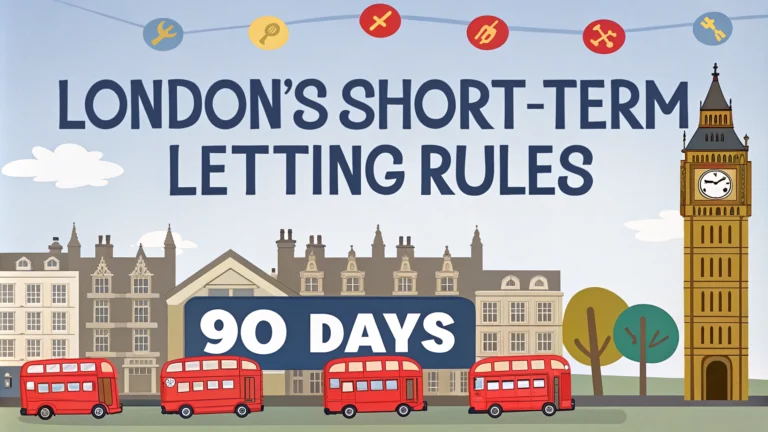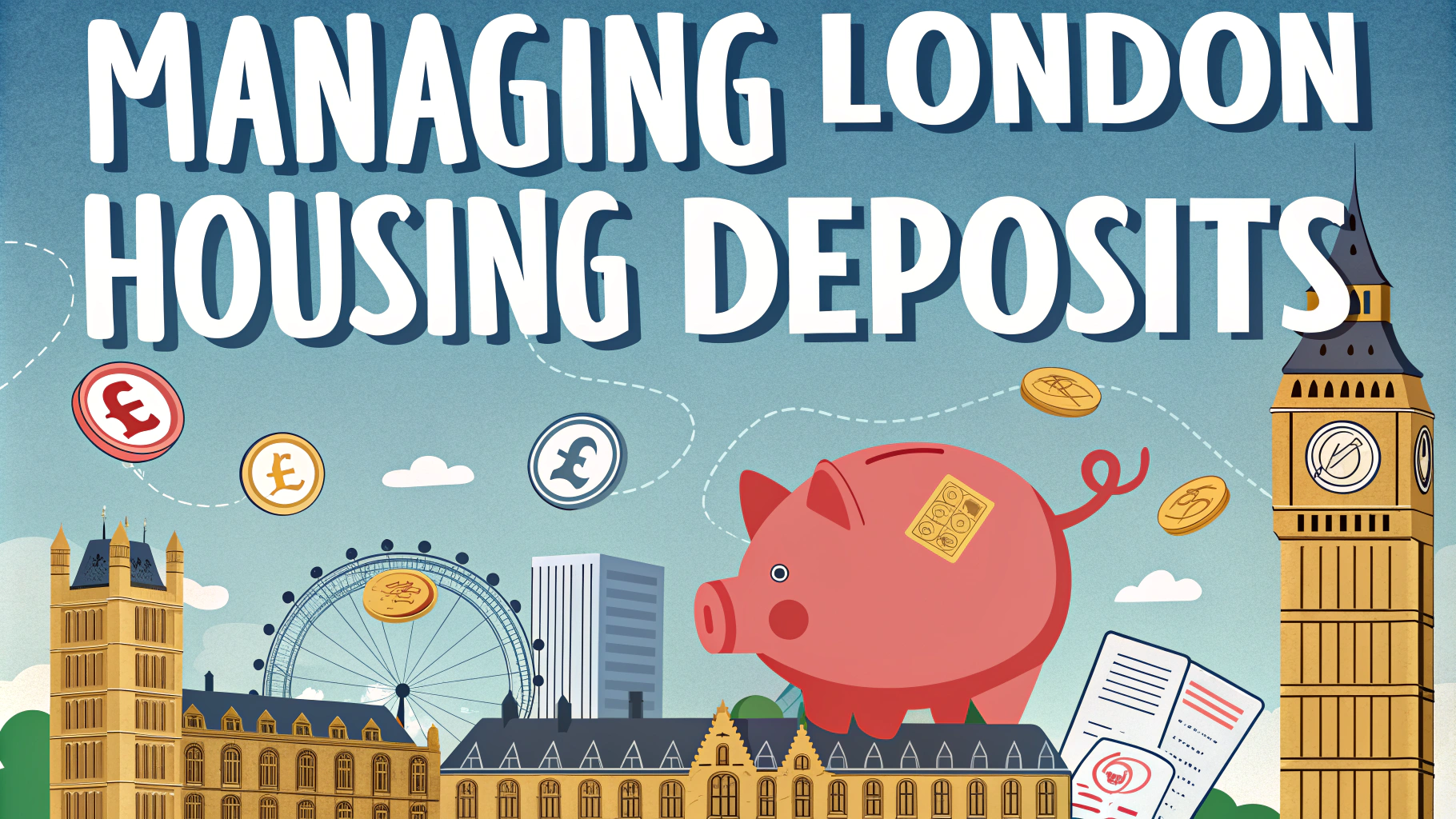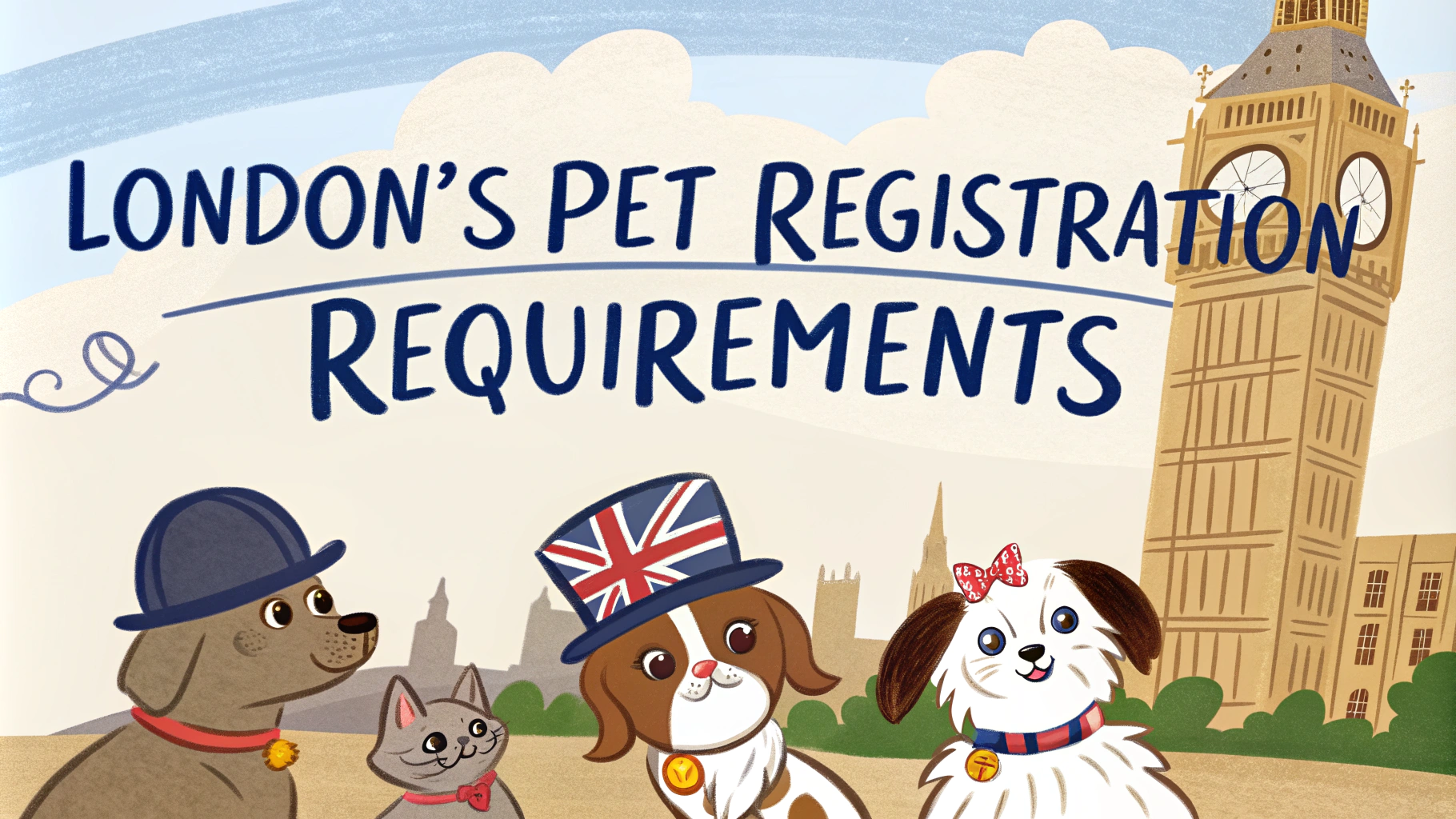London’s short-term letting regulations aim to maintain housing availability for residents while allowing flexibility for property owners.
The “90-day rule” restricts short-term rentals in London to a maximum of 90 nights per calendar year without planning permission.
Understanding these rules is essential for both property owners and tenants to avoid potential fines and legal issues.
Key Short-Term Letting Rules in London
- Maximum 90 nights per calendar year for short-term lets
- Property must be your primary residence
- Planning permission required for lets exceeding 90 nights
- Valid insurance and safety certificates needed
- Compliance with local council regulations
Required Documentation
Property owners must maintain these essential documents:
- Gas Safety Certificate (renewed annually)
- Electrical Installation Condition Report (EICR)
- Energy Performance Certificate (EPC)
- Fire risk assessment
- Public liability insurance
Platforms and Compliance
Major platforms like Airbnb automatically limit London listings to 90 nights per year.
| Platform | 90-Day Limit Enforcement |
|---|---|
| Airbnb | Automatic counter |
| Booking.com | Manual monitoring |
| VRBO | Host responsibility |
Penalties for Non-Compliance
- Fines up to £20,000 for breaching the 90-day rule
- Enforcement action by local councils
- Potential legal proceedings
- Platform account suspension
Extending Beyond 90 Days
To let your property for more than 90 days, you’ll need:
- Planning permission from your local council
- Change of use application
- Additional safety certificates
- Enhanced insurance coverage
Local Council Contacts
Contact your borough council’s planning department for specific guidance:
- Westminster: 020 7641 6500
- Camden: 020 7974 4444
- Kensington and Chelsea: 020 7361 3012
- Tower Hamlets: 020 7364 5009
Making Your Short-Term Let Success
- Keep detailed records of letting dates
- Install a smart home system for remote access
- Use a property management service for handling changeovers
- Set up automated booking systems
- Maintain clear communication with neighbors
Next Steps for Property Owners
Register with your local council’s planning department for guidance on your specific situation.
Consider joining the UK Short Term Accommodation Association (UKSTAA) for industry updates and support.
Consult with a property management company to ensure full compliance with current regulations.
Managing Guest Relations
- Create a comprehensive house manual
- Set clear check-in and check-out procedures
- Provide emergency contact information
- Establish quiet hours and house rules
- Document any damages or issues promptly
Financial Considerations
Tax Implications
- Income must be declared to HMRC
- Keep detailed records of earnings and expenses
- Consider Rent a Room Scheme benefits
- Consult with a tax professional
Insurance Requirements
- Standard home insurance may not cover short-term lets
- Specialist short-term rental insurance needed
- Contents insurance for furnished properties
- Public liability coverage essential
Property Maintenance
- Regular cleaning between guests
- Quarterly maintenance checks
- Emergency repair contacts on standby
- Inventory management system
- Professional cleaning service contracts
Maximizing Your London Short-Term Let
Success in London’s short-term rental market requires careful attention to regulations, proper documentation, and professional management. Stay informed about local rules, maintain high standards of safety and cleanliness, and consider professional support for seamless operations.
- Join local landlord associations
- Network with other short-term let owners
- regularly review and update your property listing
- Monitor market trends and adjust pricing accordingly
- Build relationships with reliable service providers
FAQs
- What is the 90-day rule for short-term lets in London?
Under the Greater London Council Act, hosts can only rent out their entire property for up to 90 nights per calendar year without requiring planning permission. - Do I need a license to let my property short-term in London?
While there’s no specific short-term rental license in London, you need to comply with safety regulations and may need permission from your mortgage lender, insurance provider, and/or landlord if you’re a tenant. - What happens if I exceed the 90-day limit?
Exceeding the 90-day limit without planning permission could result in fines of up to £20,000 and potential enforcement action from your local council. - Can I rent out a room in my London home while I live there?
Yes, the 90-day rule only applies to entire property rentals. You can rent out a room in your home while you live there year-round without restriction. - Do I need to inform my local council about short-term letting?
While there’s no requirement to notify the council when starting short-term letting, you must ensure compliance with local regulations and safety standards. - What safety requirements must I meet for short-term letting?
You must have a valid Gas Safety Certificate, working smoke alarms on each floor, carbon monoxide detectors where required, and ensure all furniture meets fire safety regulations. - Do I need to pay tax on my short-term letting income?
Yes, income from short-term letting must be declared to HMRC. You may qualify for the Rent a Room Scheme if letting a furnished room in your main home. - Can leaseholders engage in short-term letting?
Leaseholders must check their lease agreement and obtain permission from their freeholder, as many leases prohibit or restrict short-term letting. - How do platforms like Airbnb enforce the 90-day rule?
Many platforms automatically limit entire home listings to 90 nights per calendar year unless hosts can provide proof of planning permission for extended letting. - What insurance do I need for short-term letting in London?
Standard home insurance typically doesn’t cover short-term letting. You need specific short-term rental insurance or host protection insurance to ensure proper coverage.







